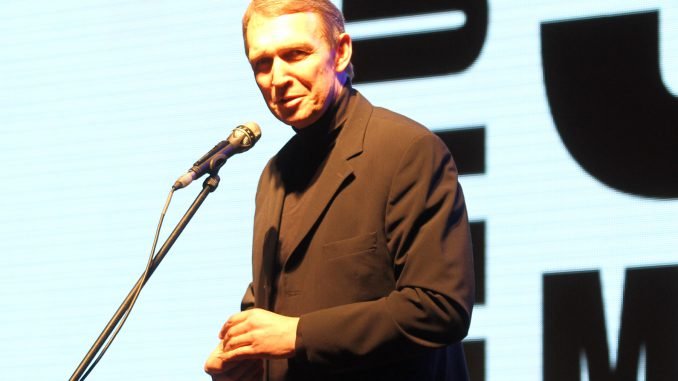
The era of pompous propaganda is quickly nearing its end. Recently, French President Emmanuel Macron declared that Europe can no longer rely on the USA and he will thus seek to create a new European security alliance, including Russia.
According to E. Macron, the European Union should represent only itself in defence. What could this mean? Is this heralding the end of joint NATO-European security? E. Macron’s planned alliance would encompass only European partners “in the broad sense, including Russia.”
A new vision by E. Macron? Let’s put it this way: a variant of the fairly old, M. Gorbachev era “common European home.” Only nowadays, it would be a completely new Euro-federalist dream of “a common area from Lisbon to Vladivostok.” Like so. All sorts of doom saying that nationalists are seeking to fragment Europe is told to stop. From the Rothschild office, the following is said: everything will now be just business, no emotions.
There have been many talks and a number of occasions for the Kremlin’s interests in Europe to have two goals: tactically break apart the European Union or the opposite – help it unite into the United States of Europe to the point where they would no longer need US aid.
E. Macron’s statement exemplifies the second path and the first step in the creation of the Paris-Berlin-Moscow axis. An impressive start.
Lithuanian Foreign Ministry specialists donning their rose tinted glasses will of course claim this is absurd. Supposedly, this geopolitical axis is impossible for both the Kremlin and Paris, as well as Berlin. This carriage is for different horses.
But still. We must become familiar with widely electronically distributed ideas and works by V. Putin‘s ideologist Aleksandr Dugin. He has long, for two decades now, modelled the US’, that is “the naval civilisation’s” expulsion from “continental Europe.” E. Macron is, of course, not listening to A. Dugin and likely knows nothing of him, but he hears V. Putin. And as an ambitious “young Napoleon” (whom he constantly imitates), he sees “visions of a new Europe.”
The story of Nord Stream 2 has already proven that Berlin is rapidly progressing as the intermediary link in the Paris-Berlin-Moscow chain. It made a statement along such lines quite recently. Albeit with more care. Every meeting at the “summits” is held to strengthen geopolitical initiatives. The chancellor was just visited by V. Putin once more. And they shook hands on gas trade.
And the major EU states’ (in essence only France and Germany) game with the Kremlin could be seen even earlier. However, now the cards are being placed on the table.
In what a schizophrenic situation are neoliberal cosmopolites and globalist propagandists placed! They will continue to accuse European nationalists for their supposed or actual sympathies to Russia? But after all, the aim of the great has already been specified: a European alliance with Russia. Perhaps without NATO.
But after all a European defence alliance cannot objectively be created. It cannot be a real alternative to NATO. Unless this alliance extended its hand to Russia…
No, EU countries are not prepared for such radical and incredibly risky changes. Thus, the conclusion is clear: E. Macron’s geopolitically overblown initiative is fracturing and weakening Europe. Donald Trump‘s actions were only a pretext for E. Macron. NATO without France? It’s happened before. But would NATO be possible without Germany? Then without Italy? Without Spain? Absurd.
Of course, some Lithuanian experts are already talking about some sort of “minor NATO.” What could we expect under such conditions of geopolitical instability? Turkey would become even more strung up and would become completely unpredictable. And China would be provided open roads into Europe.
What are we to do? Of course, for now nothing will be done. Only journalists and netizens will continue being intimidated with nationalists.
It is clear that such sudden geopolitical shifts are not useful or needed for Lithuania and other minor EU member states. They are even dangerous.
At the start of her first term, President D. Grybauskaitė visited specifically France (to those, who forgot: during this visit, the Lithuanian flag was hung upside down). And France was declared the first strategic partner of Lithuania.
What about now? The time has come for Lithuania to disagree with its who knows which level strategic partner? Perhaps we need a joint position of a number of EU countries? All of the Baltics? But after all we do not coordinate foreign policy with even Latvia.
One is already clear: the times are ending, where we could bandy propaganda slogans and stereotypes – supposedly, this is the united international policy of Europe. Which someone somewhere creates. They don’t.
The Visegrad states’ union is becoming ever more crucial to us with each passing day. It would mean a certain real foreign policy for us (together with Latvia) and a concern in our real long-term national interests. We are rapidly nearing the end of the era of pompous propaganda.

Be the first to comment